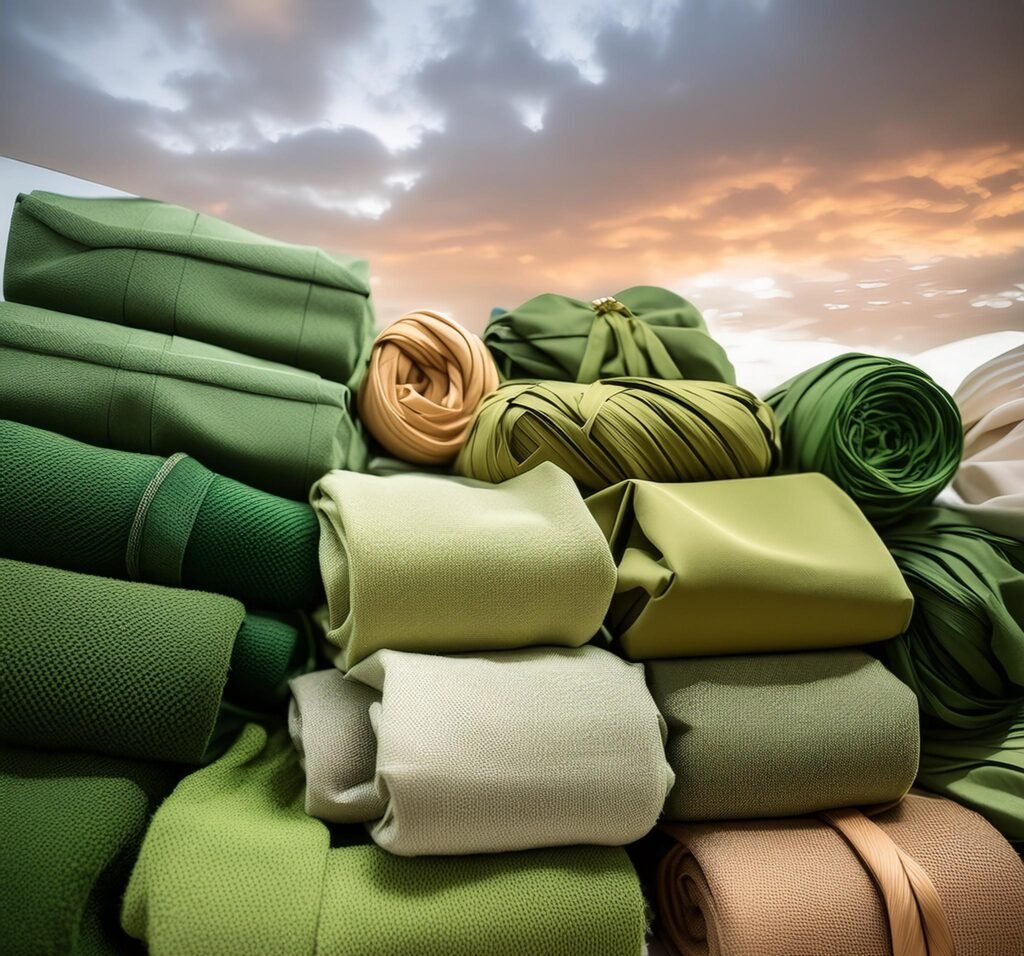Are Bio-Based Textiles Revolutionizing the Fashion Industry?

INTRODUCTION
WELCOME TO RUNZOER INDIA, Are you curious about the latest innovations that are reshaping the fashion world? If so, you’ve come to the right place! In today’s blog post, we delve into the fascinating realm of bio-based textiles and explore how they are revolutionizing the fashion industry. From sustainable sourcing to reduced environmental impact, these next-generation fabrics are capturing the attention of designers, consumers, and industry leaders alike. Join us as we uncover the exciting potential of bio-based textiles and discover how they are paving the way for a more sustainable and ethical future in fashion. Buckle up, fashion enthusiasts, because you’re about to embark on a journey that will transform the way you see clothing.
Embracing Green Practices in Fashion
In recent times, terms like sustainable, biodegradable, reusable, and eco-friendly have become increasingly ubiquitous, particularly within the realms of skincare and haircare products, packaging,cutleries, and even clothing. Our forebears originally utilized plant-based textiles and animal skins to shield themselves from the elements. However, the advent of technology precipitated a tremendous transformation in the textile industry, with over 60% of textiles now being composed of polyester and other petroleum-derived fibers. Consequently, discarding such garments has dire environmental ramifications, leading to substantial amounts of land being filled and costing the global economy over $500 billion annually.
The statistics related to fashion waste are indeed alarming and demand attention:
- By 2050, over 150 million metric tons of clothing waste are projected to inundate landfills due to the dwindling usage lifetime of garments.
- Approximately 20% of global wastewater is attributed to textile dyeing.
- Cloth manufacturing generates in excess of half a million metric tons of microfiber pollution, which equates to 50 billion plastic bottles, ultimately contaminating the oceans.
- The textile industry is a significant contributor to the annual release of 1.2 billion tons of greenhouse gas emissions.
- An estimated 92 million tons of clothing waste are discarded annually, with 7.6 to 10 cubic meters of textiles being disposed of every second.
It is evidently imperative that the apparel industry adopt environmentally friendly practices. This does not necessitate resorting to unconventional measures, such as fashioning garments out of leaves. The solution to this pressing issue has already been established and is in the form of bio-based textiles.
Understanding Bio-Based Textiles
As a viable alternative to petroleum-based fabrics, bio-based textiles are becoming increasingly essential due to the environmental pollution caused by the textile industry through carbon dioxide emissions, chemicals, and micro-plastics. These textiles are crafted from starches, sugars, and lipids extracted from various natural sources such as corn, sugar cane, sugar beets, and plant oils, employing diverse technologies. Despite the availability of natural materials like cotton, wool, and silk, these alone are insufficient to satiate the escalating global demand for textiles. Thankfully, fabrics derived from castor beans are now a reality, offering a sustainable solution for the industry.
The Significance of Bio-Fibers
The foundation of textiles lies in fibers, which are slender, thread-like strands twisted and spun to form yarn, which is then woven into fabric. These fibers are sourced either from natural materials like plants and animals (e.g., cotton, wool, jute, and silk) or through synthetic means such as nylon, rayon, polyester, and polyacrylic.
While synthetic fibers have dominated the textile industry due to their cost-effectiveness, durability, quick-drying nature, resistance to wrinkles, and minimal color fading, they carry a substantial environmental footprint owing to their petroleum-based origin. Bio-fibers serve as a sustainable and biodegradable alternative, derived from renewable sources and exemplifying eco-friendliness throughout their manufacturing.
The Unique Potential of Castor Bean Bio-Fibers
Though traditional bio-fibers like cotton possess biodegradability and comfort, they are associated with challenges stemming from intensive farming and significant water consumption. In contrast, the utilization of castor bean fabrics presents an entirely different narrative. The castor plant is recognized for its minimal water requirements and minimal impact on the food chain for humans or animals. The high oil content of castor beans permits the extraction of oil, which is a crucial ingredient in various industries.
The castor oil derived from these beans contains a high percentage of ricinoleic acid, enabling its transformation into polyamide, a key material for synthesizing bio-fibers. The resulting bio-fibers manifest properties akin to synthetic fibers yet remain biodegradable, sustainable, and eco-friendly. Particularly suited for sportswear, bio-fiber fabrics demonstrate ultralightness, quick-drying capabilities, stretchability, breathability, non-iron properties, comfort, odor resistance, adaptability to diverse climates, and a range of vibrant colors.
The Viability of Bio-Fibers
For any bio-based fabric to be commercially viable, it must closely match the textural and mechanical properties of its non-bio-based counterparts. Castor bean bio-fibers adeptly blend natural and synthetic characteristics, representing a compelling solution for curtailing the extensive textile waste being generated. Furthermore, the entire process of producing castor oil and its derivatives is environmentally benign, positioning castor fabric as a sustainable and viable replacement for synthetic fibers.
In championing the production of such valuable oils RUNZOER INDIA, a leading castor oil manufacturer in India, takes pride in propelling the fashion industry towards a sustainable and circular paradigm.
